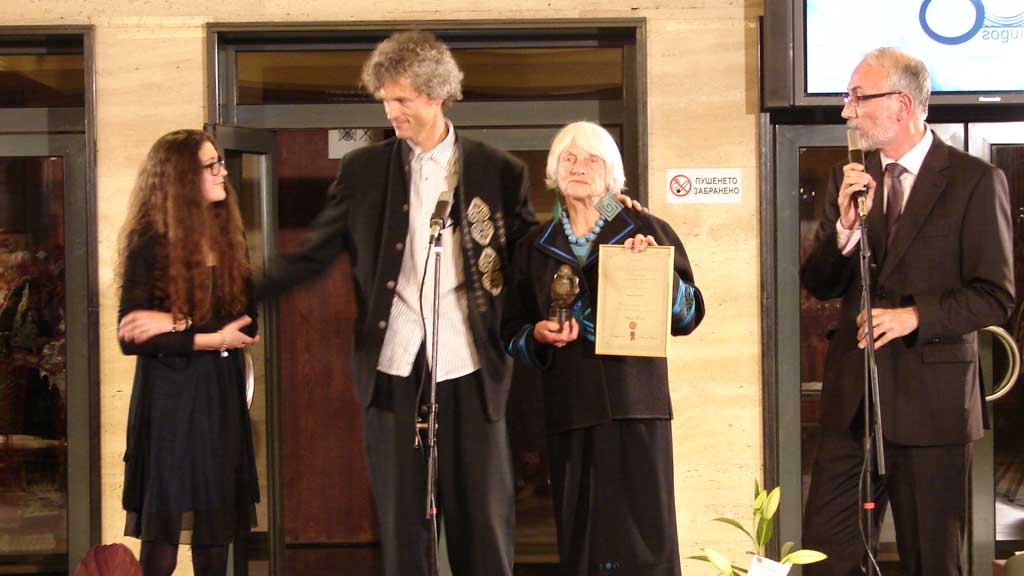Catherine Cellier, the widow of the discoverer of the Mystery of the Bulgarian Voices folk choir Marcel Cellier, was in Bulgaria with her son Alexandre and granddaughter Lucie to receive the Sirak Skitnik Award of the Bulgarian National Radio given posthumously to her husband for the worldwide promotion of Bulgarian folk music. Mrs. Cellier, her son and granddaughter were interviewed by the 12+3 show of the BNR Horizont Channel.
In the aftermath of 1950 you have traveled 3 million km in post-war Eastern Europe and have made 5000 recordings of music. Are those figures right?
Alexandre Cellier:
“When one works with love, one does not necessarily keep strict statistics.”
What was the last time you visited Bulgaria?
 Catherine Cellier:
Catherine Cellier:
“Unfortunately, we haven’t visited the country for close to a decade. In the recent years my husband did not feel well and could not travel. However, he was always able to have enough strength to listen to music – every day, every evening and late into the night.”
It seems that music has been a part of your trips.
Catherine Cellier:
“Yes, indeed, music was the reason behind our trips.”
There was a documentary film that showed your home’s interior virtually packed with music instruments. Is this still the case?
Catherine Cellier:
“Yes, there are many music instruments in our home but the collection still needs a rebec.”
“Bulgaria and me – a love story”, Marcel Cellier used to say. You have come back to this love with your son Alexandre and granddaughter Lucie. Have you asked them whether they can sense here all that love linked to your life?
Catherine Cellier:
“We do not ask ourselves such questions. This is an experience one has to go through together with other people."
Alexandre Cellier:
“I think that one proof of that the magic of music is passed down from generation to generation is the fact that my daughter Lucie sings and plays music almost every day. During our latest trip she even learned how the play the ukulele, an instrument similar to the rebec but with only four strings."
Looking back at what you have done, can you say that it has urged the Swiss and then the rest of the world to see and feel the Balkans in a different way? This music became very popular everywhere especially after the Grammy Award in 1990.
Alexandre Cellier:
“The road was very long before audiences would open up their minds for listening to this music. In the beginning, people were not ready to accept this sophisticated way of combining sounds and sonority."
Have the Swiss been able to open up their hearts to this music?
Catherine Cellier:
“I think that we have to be happy with the results. The impact of all those efforts is quite evident: all the time I receive moving letters from people who tell me they have opened their hearts to this music. I think we have succeeded in making its inherent beauty obvious to the audience.”
English Daniela Konstantinova
"Bulgarians decorate the world," tells us Emilia Juеcker, who has been living in Germany for decades. The diversity of our cultural traditions, literature, and folklore is at the heart of the seventh annual meeting "Bulgarian Speech, Music, Colors and..
The second edition of the Festival of Bulgarians and Descendants of Bulgarians in Argentina will be held on November 30 at the San Juan Bosco School in the Argentine city of Comodoro Rivadavia. “This Saturday, our beloved society will welcome..
The fourth national Biennial of Illustrations opens today in the triangular tower of Serdica, part of the Regional Museum of History in Sofia. As during its previous editions, the biennial is not themed. “The aim is to enable the authors to..

+359 2 9336 661
